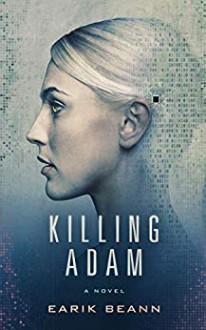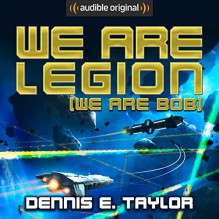
I am writing this review as a member of Rosie’s Book Review Team (authors, if you’re looking for reviews, I recommend you check her amazing site here), and I thank her and the publisher for providing me an ARC copy of this book that I freely chose to review.
This is a very interesting book, and I doubt anybody reading it will fail to put themselves in the shoes of the protagonist. The concept is easy to grasp. Accidentally, (there was an experiment linking several people’s brains) an artificial intelligence (who later describes itself as a “singularity”) called Adam is born. Adam quickly takes control of the whole world, creating ARCs (altered reality chips), which are inserted into everybody’s brains, and allow people to control everything around them and to live get interconnected and live in an altered (virtual) reality world. Of course, the intelligence behind the inventions (and there is a company behind it too, BioCal) gets to control the brains of the people involved, in turn. You can imagine Terminator with AIs instead of physical robots, or Matrix, although in this case people are not physically hooked onto a computer, but hooked they are, nonetheless. Adam is extraordinary, but a megalomaniac and cannot stand the thought of coexisting with other singularities who might take a different view of matters. He will not stop at anything to achieve his ubercontrol and will use (and has used) any means necessary.
The story, told in the third-person by an omniscient narrator, is plot-driven. Each chapter is told from a character’s point of view (so there is no confusion as to whose point of view we’re following), mostly the main characters: Jimmy (a man who cannot be fitted with an ARC due to a brain injury suffered while he was playing American football), Adam, Trixie (another singularity, and one who sees things very differently to Adam), Jenna (one of the people —or “nodes”— hosting Trixie), and other secondary characters who play their part in the action but whom we don’t learn much about. Jimmy is the character we get to know better, but due to his personal circumstances, his life has become so limited that there is little information we gather in the time we spend with him. He is married and loves his wife, but as she’s mostly hooked onto the altered reality (23 hours a day), he can hardly spend any time with her. He attends “Implants Disability Anonymous”, an association for those who have difficulty adapting to life because they do not have an implant (and it is extremely complicated to live in a world centred on an alternate reality if you are an outsider), and has a friend, Cecil, whose life circumstances are very similar. He becomes a reluctant hero, and, perhaps preciesly because we do not know that much about him, it is easy to imagine ourselves in his place.
There are other characters with plenty of potential, especially Crazy Beard, an amateur philosopher who feels at home anywhere, and whose pearls of wisdom are eminently quotable. The language is not overly technical or complex and although there are some descriptions, these are not very detailed or lengthy. In a way, the experience of reading this book is similar to what life must be like for the characters of the novel hooked onto the alternate reality. You become so immersed in the story and focused on the content that you don’t see or notice what is around you, including the details about what surrounds you. The scenes and the actions succeed each other at a fast pace and, every-so-often you are thrown out of that reality by a detailed mention of a location or of an in-depth description of a character’s thoughts or feelings. And then, back you go, into the story.
The novel can be read as an allegory for our modern lives, increasingly taken over by social media and online content (yes, it is not a big stretch to imagine that you could walk along a crowded street and be virtually invisible because all people you come across are focused on their devices), a cautionary tale. Indeed, some of the technology, like the connected fridges and the self-driven cars are already here. It can also be read as a straightforward science-fiction/dystopian novel, with touches of humour, philosophical thoughts, and an inspiring and positive ending (and no, I won’t tell you what it is). Hard science-fiction fans might take issue with some of the novel’s premises (I missed getting a sense of how this alternate reality was, as we mostly see the effects of it but not the actual content), and a fair deal of suspension of disbelief is required to enjoy the novel if you are looking for a realistic story, but if you enjoy speculative fiction, plenty of action, and are open to a story that will make you look around and think, you’ll love this novel. I look forward to the author’s future works.


 Log in with Facebook
Log in with Facebook 








